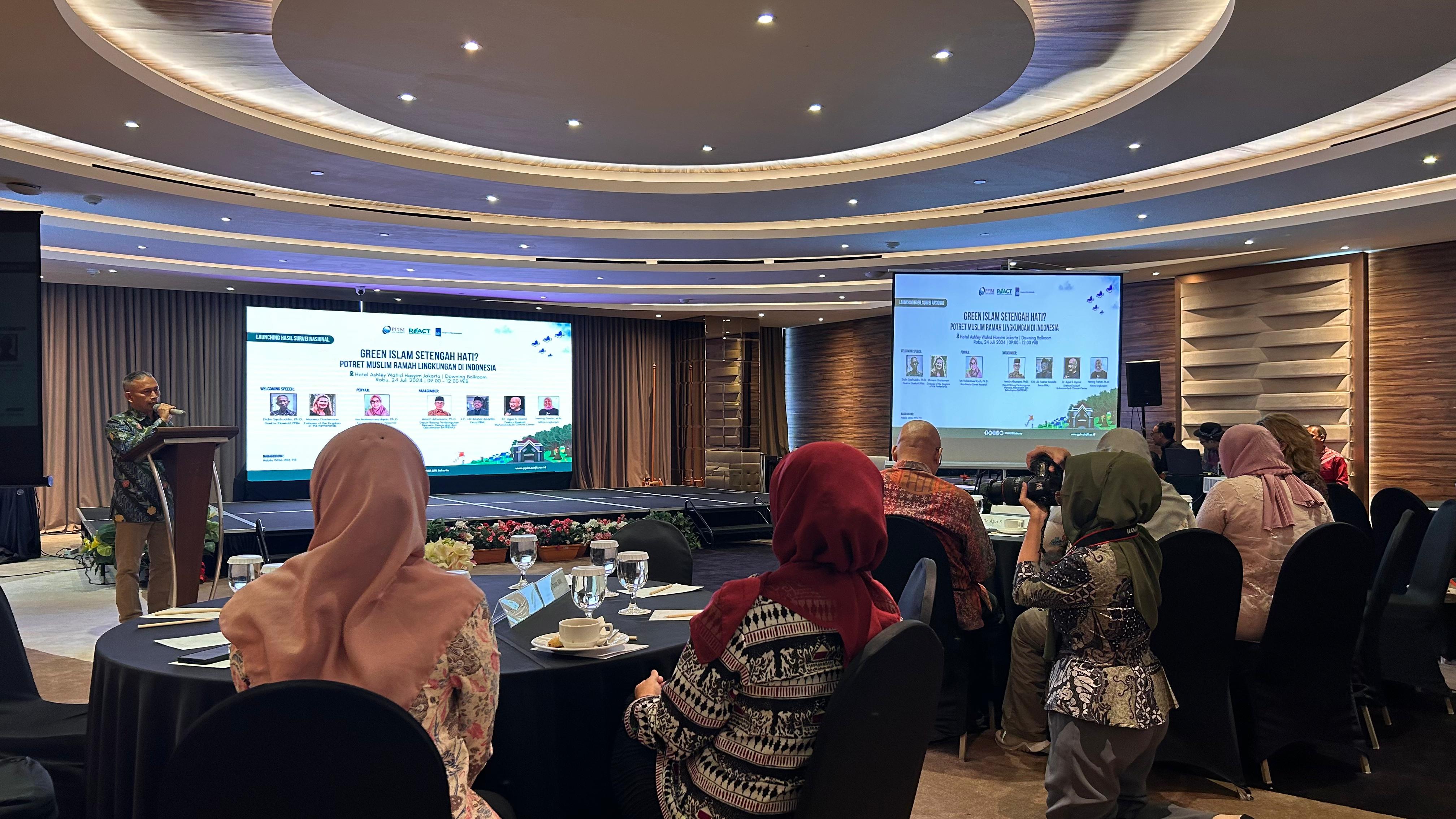'Green Islam' for Environmental Preservation - Indonesia
'Green Islam' for Environmental Preservation
Last week, Dutch Embassy had the pleasure of attending the launch of the REACT (Religious Environmentalism Actions) national survey, which delves into the knowledge, attitudes, and behaviors of Indonesian Muslims regarding the environment and climate change.
This significant research was conducted by the Center for the Study of Islam and Society (PPIM) of Syarif Hidayatullah State Islamic University Jakarta (UIN Jakarta) and supported by Dutch Embassy.
The study provides fascinating insights into the dual role religion plays in environmental conservation, showcasing both its positive impact and the challenges it encounters. The findings were presented in Jakarta, sparking engaging discussions on how religious beliefs can promote sustainable practices.
We were honored to hear from Maressa Oosterman, Head of Department, and Didin Syafruddin, Executive Director of PPIM UIN Jakarta, who gave inspiring opening remarks. Maressa said that the Dutch Embassy supports all efforts to spread knowledge related to environmental conservation, one of which is the publication of this survey which can be the basis for new initiatives. Meanwhile, Didin thanked the Dutch Embassy for supporting this survey, which he said was the first of its kind, and hoped that it could have a positive impact on many communities in Indonesia.
This was followed by an insightful presentation of the REACT survey
by National Survey Coordinator Iim Halimatusa'diyah. In one
explanation of his survey, she said that it is time for environmental
campaigns to involve more young people and cross-communities. The
campaign should also be easily digestible by people of all classes, so
that it is not only the elite who are educated.
Notable guests
included representatives from the Ministry of BAPPENAS, PBNU, and
Muhammadiyah.
A huge thank you to all participants and
contributors who made this event a success. Your involvement is
crucial as we work together towards a sustainable future through
shared knowledge and collaboration.
Let’s keep the conversation going!
Read more about this survey here.

